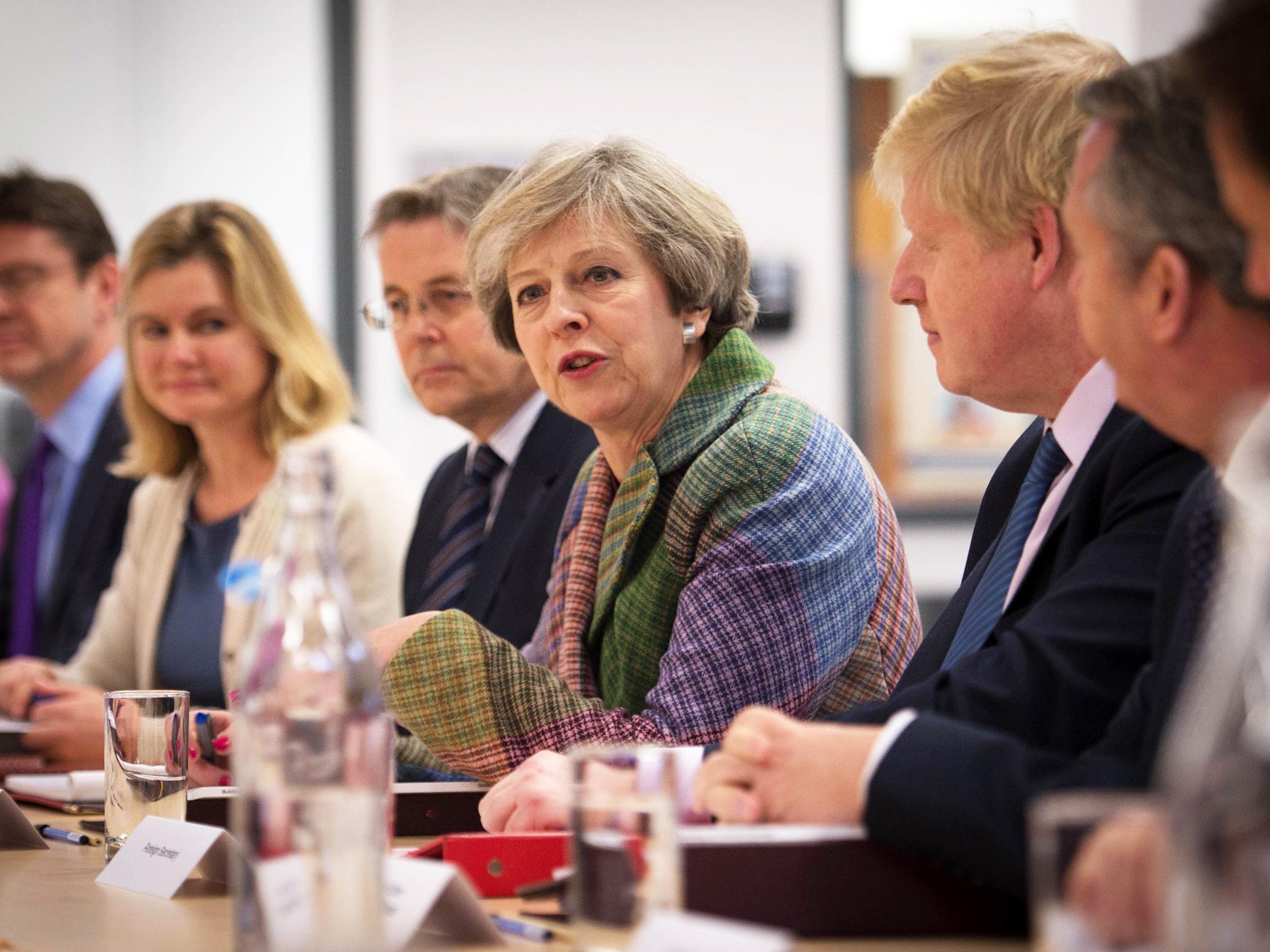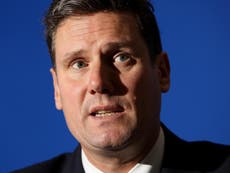During the Brexit years, Theresa May hasn't got time for domestic politics. She badly needs a deputy
Looking around her Cabinet table, few of May’s colleagues meet the dual criteria for the role: the authority to do the job but without appearing to be an alternative PM should the challenge of Brexit prove too great

In all that is being said about Theresa May, Brexit and her relations with Donald Trump, little attention has been given to the extraordinary workload of the Prime Minister.
At the end of last month, May spent Thursday and Friday in Washington to meet the new US President. She then flew to Turkey on Saturday. On Monday she went to Cardiff to meet the leaders of the devolved administrations who each have concerns about Brexit, and on Tuesday she travelled to Dublin to meet the leadership of the EU member state with most reason to be concerned about the UK’s intended departure. On Wednesday she was back in the House of Commons for her weekly session of Prime Minister’s Questions. But by Friday was on the move again, heading to Malta for the informal meeting with EU leaders.
The Prime Minister must play her best possible game at a series of highly-charged European summits and council meetings. There will inevitably be one key theme of the main international forums including the G8 and G20, and even the Nato summit and the Commonwealth Heads of Government Meeting: everyone wants to talk to her about Brexit.
But how is the Prime Minister to cope with Brexit while running the country with a small majority? What about her domestic policies? She needs support.
May cannot and should not delegate responsibility for Brexit to her ministerial colleagues. It is the issue that will define her premiership and she must be seen to take personal responsibility for it. The same argument applies to the wider diplomatic agenda which is so dominated by Brexit. Equally, she needs to keep a tight rein on her three cabinet colleagues with responsibility for Brexit: Boris Johnson, David Davis and Liam Fox. She cannot give any one of the three ascendancy over the other two.
But where else can she look for help?
Philip Hammond, the Chancellor, is the ultimate safe pair of hands. Sometimes rather dry in tone, Hammond is of one mind with the Prime Minister on matters economic. She need not worry that he needs watching, but he does not need the distraction of a second job overseeing his cabinet colleagues.
The potential so far unseen hazards for May’s Government are not so much on the foreign or economic desks but on the home front. The strain on the NHS, the crisis in social care, the housing shortage, continuing chaos on the railways, discontent in the prisons. Any one of these – let alone two or three in combination – could provoke a serious political crisis. The UK’s second female PM should perhaps remind herself that Margaret Thatcher – who saw off General Galtieri and the National Union of Mineworkers – was brought down by the seemingly dull issue of local government finance.
May has also pledged to preserve the United Kingdom. It used to be said of David Cameron that if he lost the referendum on independence for Scotland he would be remembered for nothing else. He will now be remembered for his failure in a different referendum. The vacant title of The Prime Minister Who Broke The Union is May’s for the taking.
To avoid such ignominies, the Prime Minister should appoint a senior minister who should handle relations with the nations and the regions of the United Kingdom; to look for compromises and ways to cement the United Kingdom together, while she detaches the country from the European Union.
The Prime Minister simply does not have the time to do all the jobs currently on her plate. Working with the devolved administrations, overseeing domestic policy, chairing Cabinet committees and knocking ministerial heads together, is a job for a deputy prime minister.
Looking around her Cabinet table, few of May’s colleagues meet the dual criteria for the role of deputy: the authority to do the job but without appearing to be an alternative PM should the challenge of Brexit prove too great for May herself.
Michael Fallon, the Defence Secretary, and Damian Green, Work and Pensions Secretary, are perhaps best qualified on grounds of loyalty and gravitas. Amber Rudd, the Home Secretary, and the Chancellor too obviously possible successors to the top and each is already holding down a big job. The role of DPM should not be combined with running a major department.
An able and loyal deputy who enjoys the Prime Minister’s full backing should be an asset to May. And just in case anyone is tempted to suggest that appointing one might be interpreted as a sign of weakness, it is worth noting that Churchill, Attlee and Blair each had a Deputy PM throughout their time at Number 10 – as did Mrs Thatcher during her more successful first two terms. And on a more cautionary note, Anthony Eden, Alec Douglas-Home, Jim Callaghan and Gordon Brown were happy to do without.
Alun Evans is chief executive of the British Academy and Gerard Hetherington is a member of the British Academy’s Audit Committee. Both are former senior civil servants


Join our commenting forum
Join thought-provoking conversations, follow other Independent readers and see their replies